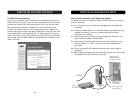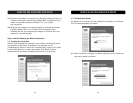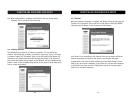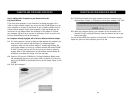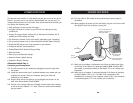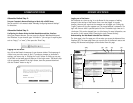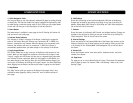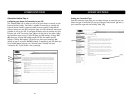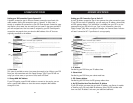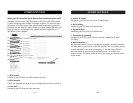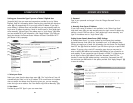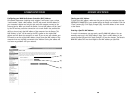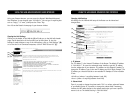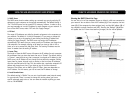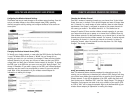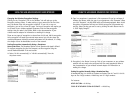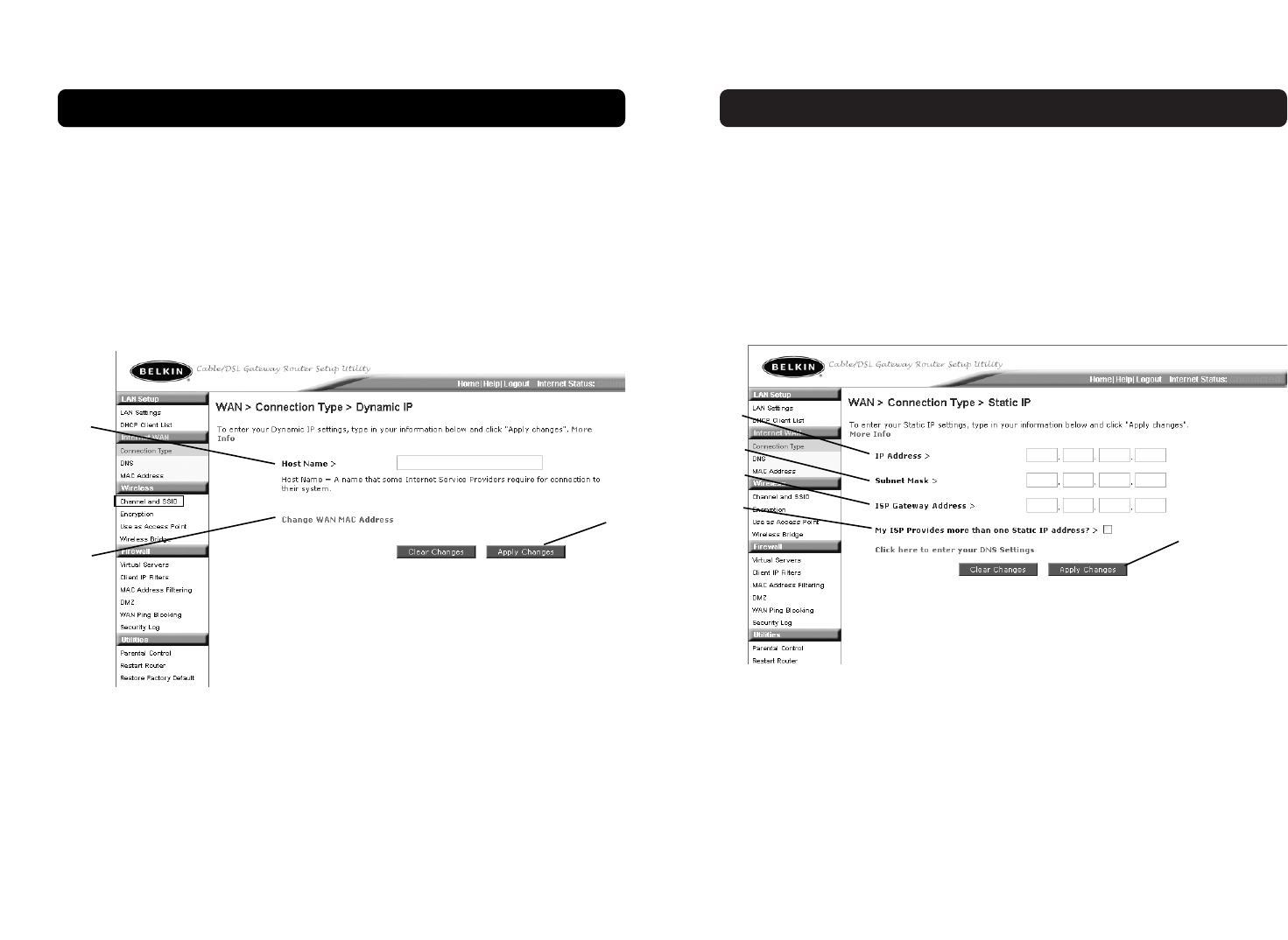
3332
ALTERNATE SETUP METHOD
Setting your ISP Connection Type to Static IP
A static IP address connection type is less common than other connection types.
If your ISP uses static IP addressing, you will need your IP address, subnet mask,
and ISP gateway address. This information is available from your ISP or on the
paperwork that your ISP left with you. Type in your information, then click
“Apply Changes” (5). After you apply the changes, the Internet Status indicator
will read “connection OK” if your Router is set up properly.
1. IP Address
Provided by your ISP. Enter your IP address here.
2. Subnet Mask
Provided by your ISP. Enter your subnet mask here.
3. ISP Gateway Address
Provided by your ISP. Enter the ISP gateway address here.
4. My ISP Provides More Than One Static IP Address
If your ISP assigns you more than one static IP address, your Router is capable
of handling up to five static WAN IP addresses. Select “My ISP provides more
than one static IP address” and enter your additional addresses.
ALTERNATE SETUP METHOD
Setting your ISP Connection Type to Dynamic IP
A dynamic connection type is the most common connection type found with
cable modems. Setting the connection type to “dynamic” in many cases is
enough to complete the connection to your ISP. Some dynamic connection types
may require a host name. You can enter your host name in the space provided if
you were assigned one. Your host name is assigned by your ISP. Some dynamic
connections may require that you clone the MAC address of the PC that was
originally connected to the modem.
1. Host Name
This space is provided to enter a host name that needs to be visible to your ISP.
Enter your host name here and click “Apply Changes” (3). If your ISP did not
assign you a host name, or you are not sure, leave this blank.
2. Change WAN MAC Address
If your ISP requires a specific MAC address to connect to the service, you can
enter a specific MAC address or clone the current computer’s MAC address
through this link.
(1)
(2)
(3)
(1)
(2)
(3)
(4)
(5)



